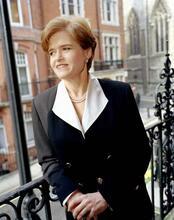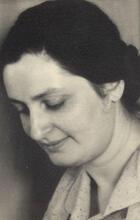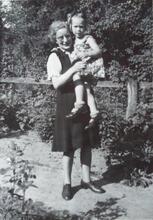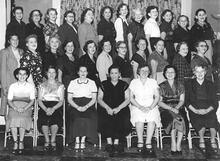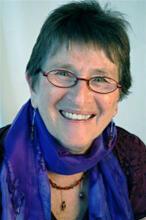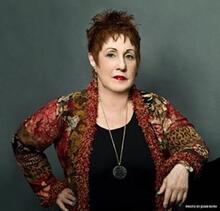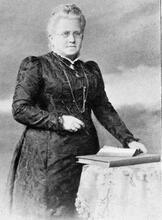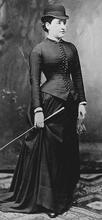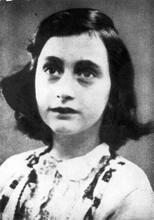Else Rahel Samulon-Guttmann
Else Samulon-Guttmann was born in modern-day Poland and soon showed her exceptional intelligence and dedication to her education. She studied law at Berlin University starting in 1920 and continued her legal training at the provincial court in Potsdam. She then earned a PhD from Heidelberg University and once again passed her State Examination with exceptional grades. Samulon-Guttmann was appointed a judge in 1929, which was notable due to her identity as a woman and a Jew. She lost her job when the Nazis came to power in 1933. While Samulon-Guttman had no illusions about the Nazi threat, her husband was more optimistic and did not wish to leave Germany. Her mother’s illness also delayed the couple’s emigration efforts until it was too late. They were deported in 1943 and murdered in 1944.
Early Life and Family
Else Samulon, a feminist active in the German women’s movement, was born on September 20, 1898, in Graudenz, Germany (now Grudziadz, Poland), which is located on the banks of the Vistula, some fifty miles south of Gdansk (Danzig). Else was the eldest of the five children who were born to the lawyer Saly Samulon and his wife Johanna. Her father, who came from Osterode, where his family had lived since the eighteenth century, set up his law practice in Graudenz in 1896. His wife Johanna (née Leiser) came from Kulm, a few kilometers from Graudenz.
Education
Else attended the Lyzeum and the Oberlyzeum in Graudenz, graduating with excellent grades in 1916. She then studied at the teacher’s seminary at the same Oberlyzeum she had attended and in February 1918 received her diploma for teaching in high schools for girls.
Not content with the education she had so far received, Else Samulon decided to try to obtain her Abitur. In order to study at a Realgymnasium she had to leave Graudenz and therefore went by herself to Gdansk (Danzig) where she passed the Abitur in September 1919.
In the summer of 1920, when Graudenz was handed over to Poland following World War I, the Samulon family had to leave their home, abandoning the father’s law office and all their property. The parents chose to move to Potsdam. Else Samulon enrolled at Berlin University in the winter semester of 1920/1921. Like her father, she decided to study law. She spent the best part of her days at Berlin University and traveled home to Potsdam every night to save money. She studied for one semester at Heidelberg University and for another at Frankfurt University. On May 16, 1923, Else Samulon passed her first State Examination at the famous Kammergericht—the Berlin provincial high court and court of appeal—with exceptional grades. One of her younger sisters, Lisbeth, later also enrolled at the law faculty but studied in Freiburg in Breisgau rather than at Heidelberg.
Else Samulon started her three-year legal training at Prussia’s courts at the Landgericht (Provincial Court) of Potsdam. In July 1925 she decided to do her Ph.D. in law while working at the court. A well-known professor, Earl of Dohna, accepted her as his student at Heidelberg University, but studying two semesters at Heidelberg University in order to be accepted as a Ph.D. student was a problem. In a letter to the university, she argued successfully that, as a refugee, she could not afford another semester at Heidelberg University, and was accepted. The topic of her thesis was “The impact of the decree of January 4, 1924, on juvenile criminal trials.” She received her Ph.D. degree in August 1926. Else Samulon passed the second State Examination at the Kammergericht with excellent results.
Career and Marriage
For three years Samulon worked as an assessor, which meant being a candidate for the civil service, poorly paid and without the certainty of finally being accepted for a position. During those years she often changed her workplace, depending on where she was placed by the Kammergericht. Only in 1929 was she appointed a judge at the lowest court rank. This was by no means a matter of course, chiefly because she was a woman and a Jew. Her appointment as a woman judge was even reported in an American newspaper.
In 1932 Else Samulon married Oskar Gutmann, a lawyer at the Kammergericht in Berlin, who was born in 1885 in Hildesheim. His father, Jakob Guttmann, was a rabbi in the community of Breslau and a well-known scholar of Jewish philosophy, whose publications were widely read in Germany. Oskar Guttmann’s brother, Julius Guttmann, was a professor of philosophy at the Hebrew University of Jerusalem from 1934 to 1950. Their mother was the sister of the well-known Danish rabbi and scholar David Jakob Simonsen.
Life in Nazi Germany
With the Nazi seizure of power in April 1933 Else Samulon-Guttmann lost her job because of the new law to re-establish the German civil service (Gesetz zur Wiederherstellung des Berufsbeamtentums). Her husband managed to work as a lawyer for several more years since, as a veteran of World War I, he could claim to be one of the so-called “Hindenburg exceptions.”
Else Samulon-Guttmann had no illusions regarding the future. She was convinced that Hitler would never stop before having eliminated as many Jews as possible. Her husband, however, was optimistic and could not believe that their lives might be in danger. At his age, the prospect of creating a new life somewhere else was inconceivable. Furthermore, Else Samulon’s mother had fallen ill and had no chance of getting a visa to leave. Hence the couple did not avail themselves of the various possibilities of leaving the country in time. Else’s other siblings left Germany before 1939, but when her mother died in 1939, the possibility of emigrating was already much more limited.
From 1939 until their deportation in 1943, Oskar and Else Guttmann lived in Berlin. In July 1943, one of Else Guttmann’s brothers, who lived in Switzerland, received a postcard from Theresienstadt. She was suffering from the after-effects of a heart-attack and asked for food parcels. Some of these still reached the couple and their responses reported on how welcome and useful they had been. Oskar Guttmann was frequently sick and hospitalized, while Else Guttmann worked in the office to provide for the care of children which was established by the deportees in the camp. Later their relatives received only preprinted postcards bearing their signatures. The last sign of life was a postcard dated August 1944. In October 1944 Else and Oskar Guttmann were deported to Auschwitz, where they were murdered.
Röwekamp, Marion. Juristinnen: Lexikon zu Leben und Werk. Baden-Baden, 2005, 339-340.
Primary sources pertaining to Else Samulon-Guttmann can be found at the Archives of Heidelberg University, Promotionsakte der Juristischen Fakultät Samulon, Else H-II–852/28; Else Rahel Samulon-Guttmann Collection, ME 386, Reel 66, LBI NYC.

